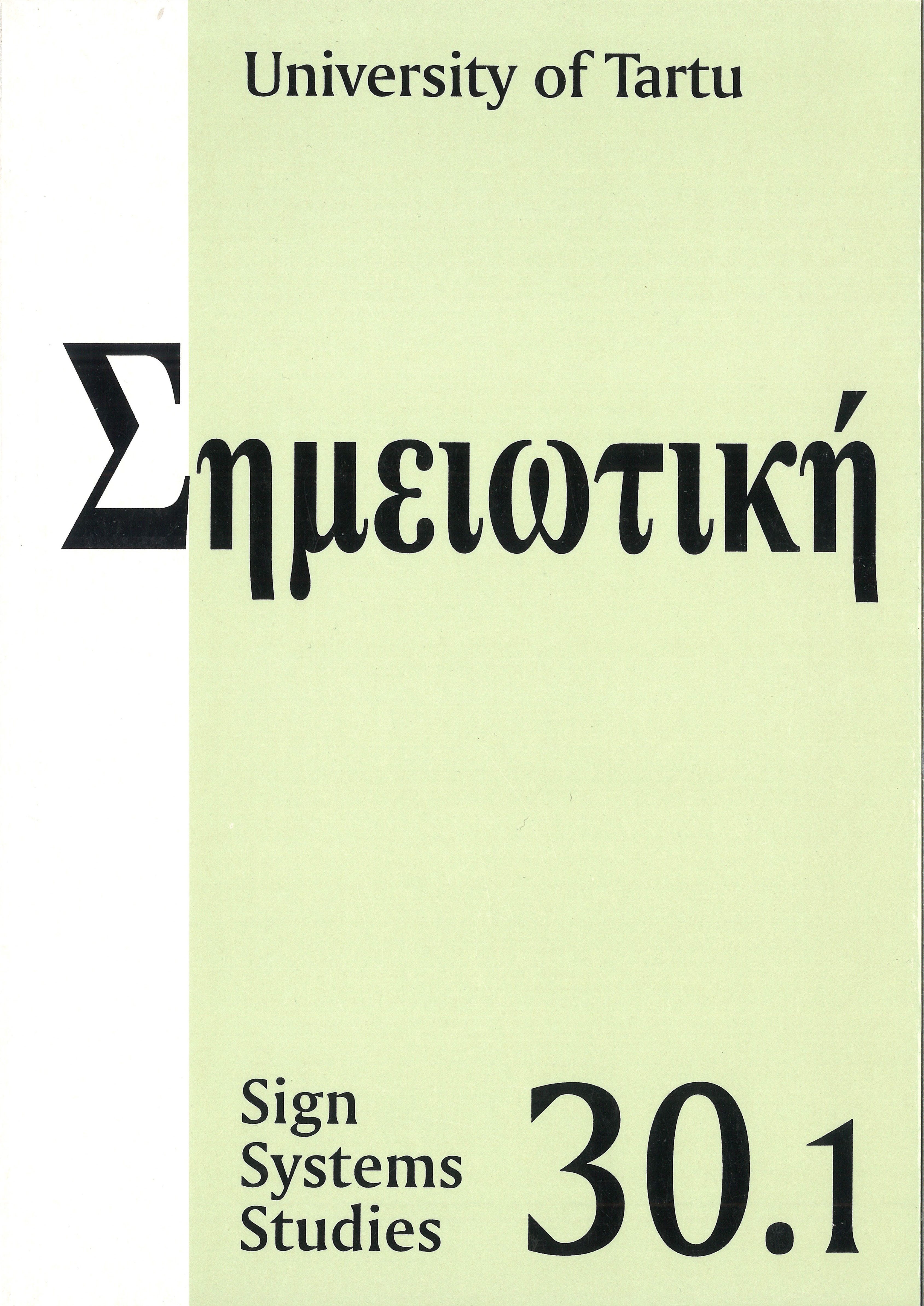Biological evolution — a semiotically constrained growth of complexity
DOI:
https://doi.org/10.12697/SSS.2002.30.1.17Abstract
Any living system possesses internal embedded description and exists as a superposition of different potential realisations, which are reduced in interaction with the environment. This reduction cannot be recursively deduced from the state in time present, it includes unpredictable choice and needs to be modelled also from the state in time future. Such non-recursive establishment of emerging configuration, after its memorisation via formation of reflective loop (sign-creating activity), becomes the inherited recursive action. It leads to increase of complexity of the embedded description, which constitutes the rules of generative grammar defining possible directions of open evolutionary process. The states in time future can be estimated from the point of their perfection, which represents the final cause in the Aristotelian sense and may possess a selective advantage. The limits of unfolding of the reflective process, such as the golden ratio and the golden wurf are considered as the canons of perfection established in the evolutionary process.


